
What is the problem?
According to the PISA International Assessment of School Education, it was found that in 2022, some Ukrainian students were unable to meet the minimum standards for mathematics, natural sciences, and reading. These results were below the average scores of the countries surveyed by the OECD (Organization for Economic Cooperation and Development).
Testing was not carried out in the eastern and southern regions of Ukraine due to the danger of conducting such a process in territories controlled by Ukraine and the physical impossibility in the occupied territories.
In a comment to the Ministry of Education and Science of Ukraine, Munir Mammadzade, head of the UNICEF office in Ukraine, noted: "The war has a major impact on the academic achievement and emotional well-being of school-aged children in Ukraine, and it will have long-lasting effects. According to the findings of the PISA study, Ukrainian children are facing greater challenges in attaining academic success."
Several factors have impacted the quality of education, including four-year online education, the 2022 blackout, frequent power outages in frontline areas, and teachers migrating abroad. Additionally, Ukrainian students in occupied territories are entirely unable to access the Ukrainian curriculum in their native language.
What is the solution?
Ensuring access to education in Ukraine is no simple task. Despite the challenges and hazards involved, groups are operating within Ukraine dedicated to enhancing Ukrainian students' education. Among them is the public organization "ZNOvU," which supports children in areas occupied by war in catching up on missed schooling and learning the Ukrainian language even where it is prohibited and suppressed. The name combines the abbreviation ZNO (external independent evaluation) and the phrase "back to Ukraine," perfectly capturing the program's ultimate objective.
How does it work?
A personal story that became a tragedy of the whole country
During the summer of 2020, Olena Pavliuk, Anastasiia Biliaeva, and Olha Koval, all graduates of "Teach for Ukraine", came together for a community meeting. Before that, the three women had spent two years teaching in local schools.
They were brainstorming ways to enhance education in the country. Their friend Illia came to lend a hand, and he shared a story about his brother living under occupation at the time. Illia was concerned about whether the ninth grader would have the opportunity to learn the Ukrainian language and history. For instance, his brother hadn't studied Ukrainian history in several years. Unfortunately, there are many children in similar situations.
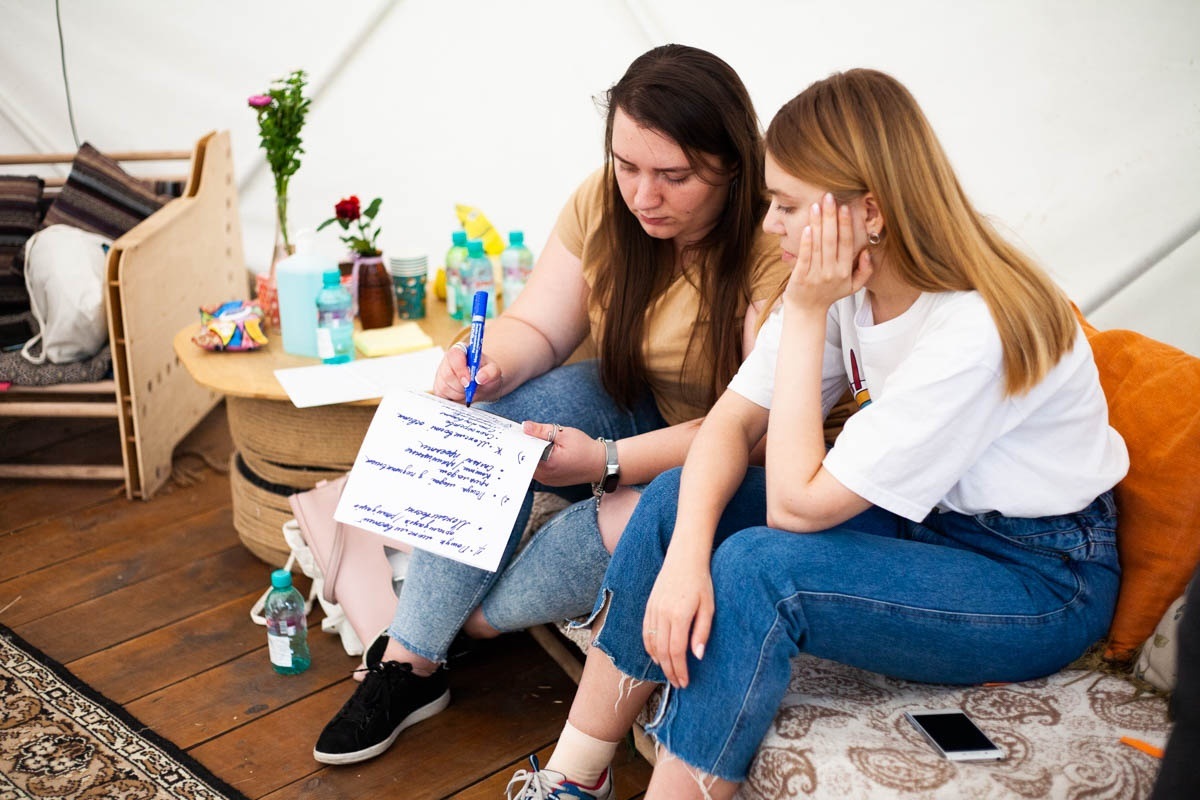 Olena Pavliuk and Olha Koval. Photo from Olena's personal archive.
Olena Pavliuk and Olha Koval. Photo from Olena's personal archive.
The girls decided to educate schoolchildren from the occupied territories, assisting them in preparing for one of the most significant exams in the lives of high school students – the external independent assessment (currently known as the national multi-subject test).
"Olia [a shortened version of the name Olha– ed.], one of the co-founders, is from the Luhansk region, while Nastia [a short form of the name Anastasiia – ed.] is from Nova Kakhovka, which was not occupied during the organization's inception but sadly is now. It's a heartbreaking reality that two out of three founders have been displaced from their homes. This lends a personal element to our story," Olena Pavliuk shared.
During the first year, the girls taught students on their own. As time went on, they started including their friends. Interestingly, Illia's brother never became part of the program, but they still managed to assist hundreds of other children.
"Many people advised against it due to the security risks"
Olena remembers that the project's launch was delayed by six months. They didn't dare to work on it because their friends advised against it.
"Many people advised against it due to the security risks . For instance, one major issue is how to handle situations where a child wants to attend a Ukrainian university, but their parents disagree. As an education provider, are we responsible for the child's actions in this case? This is one of the main factors for focusing on students in grades 10-11. These are adolescents who are legally held accountable for their actions," explains the organizer.
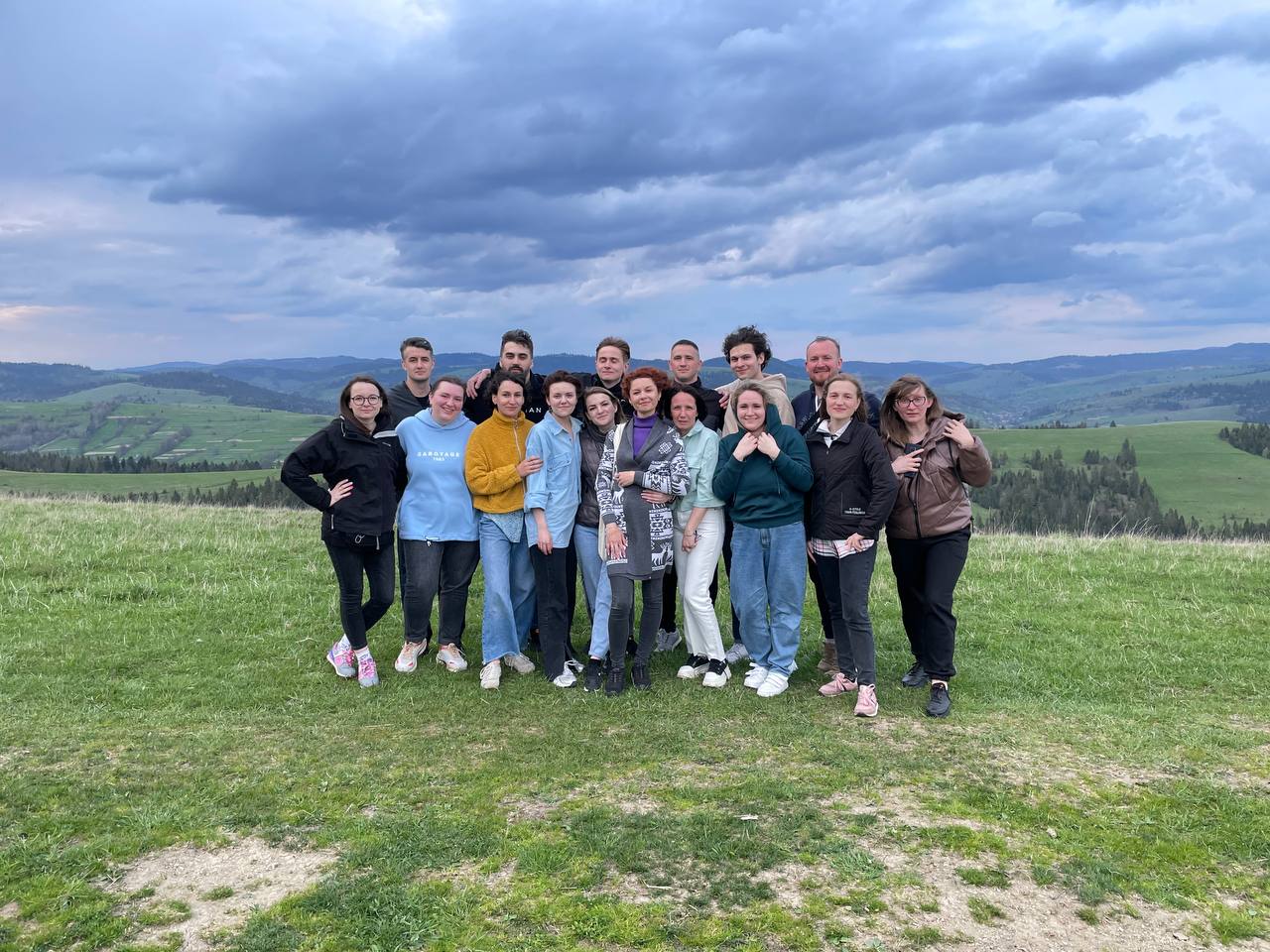 Source: Facebook
Source: Facebook
Eventually, the girls realized that if they kept consulting with everyone, they would never get any work done, and the children would never receive their help. So they made a decision just to start now. Olena is now reflecting:
"Now that a full-scale war has broken out, I can't help but think about all the brave individuals who sacrifice their lives on the line every day. They're constantly depicted in the Russian media. Meanwhile, here I am in Kyiv, too scared to even film a project for children. It's simply absurd."
"There is currently a strong surge of volunteerism in Ukraine, and people feel a sense of responsibility"
In 2020, the "ZNOvU" program began with 18 applicants, and only 14 students were chosen. Initially, only six teachers were available, and not all subjects were covered. The greatest challenge was finding qualified teachers for physics and chemistry.
In 2023, the organization received over 800 applications from individuals interested in studying. Of those, 250 students were selected to participate in the project. The size of group classes ranged from 5 to 15 people, depending on the popularity of the subject and the number of available teachers. In particular, English language groups tend to be larger due to the country's shortage of English language teachers. Efforts are made to group students according to their levels of knowledge.
"Basically, this means that there are 88 classes held each week for 250 students from various groups. On average, there is space for ten students per teacher. In total, we have 880 spots available in our organization since each student can participate in multiple subjects, such as math, Ukrainian language, biology, and English. The students prepare for all the subjects they plan to take exams in," the organizer adds.
They agreed to hold group classes to gather more feedback from students on the lesson quality. Olena also mentioned:
"During class, nine out of ten students provide positive feedback, while one may have negative feedback. In this case, we assign the child to a new group and search for a teacher with a compatible temperament. However, in individual classes, we would need a larger pool of teachers, and the feedback from a single student would not be enough to decide whether to continue or terminate the cooperation with that teacher."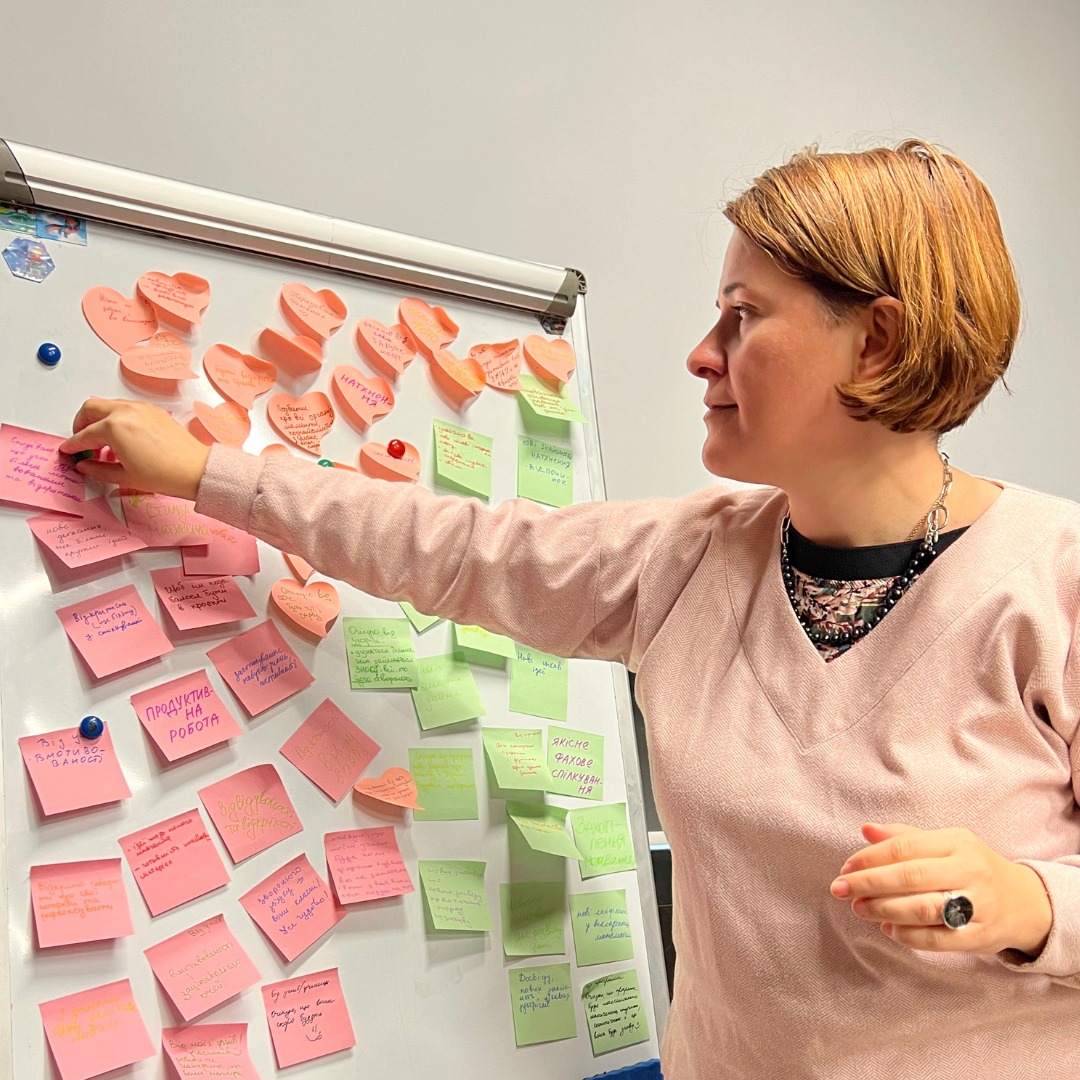
Training for teachers. Source: Facebook
The team carefully chooses volunteer teachers based on their motivation, experience, and expertise. The project founders consider not only their work location and years of experience but also their training for the external independent assessment or national multi-subject test. It is also essential that the teachers understand how to teach high school students and prepare them for the exam.
"Our teachers are our greatest asset. When I realize that almost 90 individuals have faith in our cause and generously volunteer their time… This holds great value for us," Olena comments.
She mentions that there were no difficulties recruiting teachers this year, stating, "There is currently a strong surge of volunteerism in Ukraine, and people feel a sense of responsibility for their country. Many are eager to join and contribute meaningfully, particularly educators and education workers. They have also been organizing activities for soldiers, such as making camouflage nets, at their schools. In addition, they have a desire to use their expertise in other ways. Our project offers them a great opportunity to volunteer to improve Ukraine. For instance, someone who excels in teaching the Ukrainian language might think, 'Why not help children who don't have access to a teacher and help them catch up, thus minimizing educational setbacks?' These individuals are highly motivated and conscious of their actions."
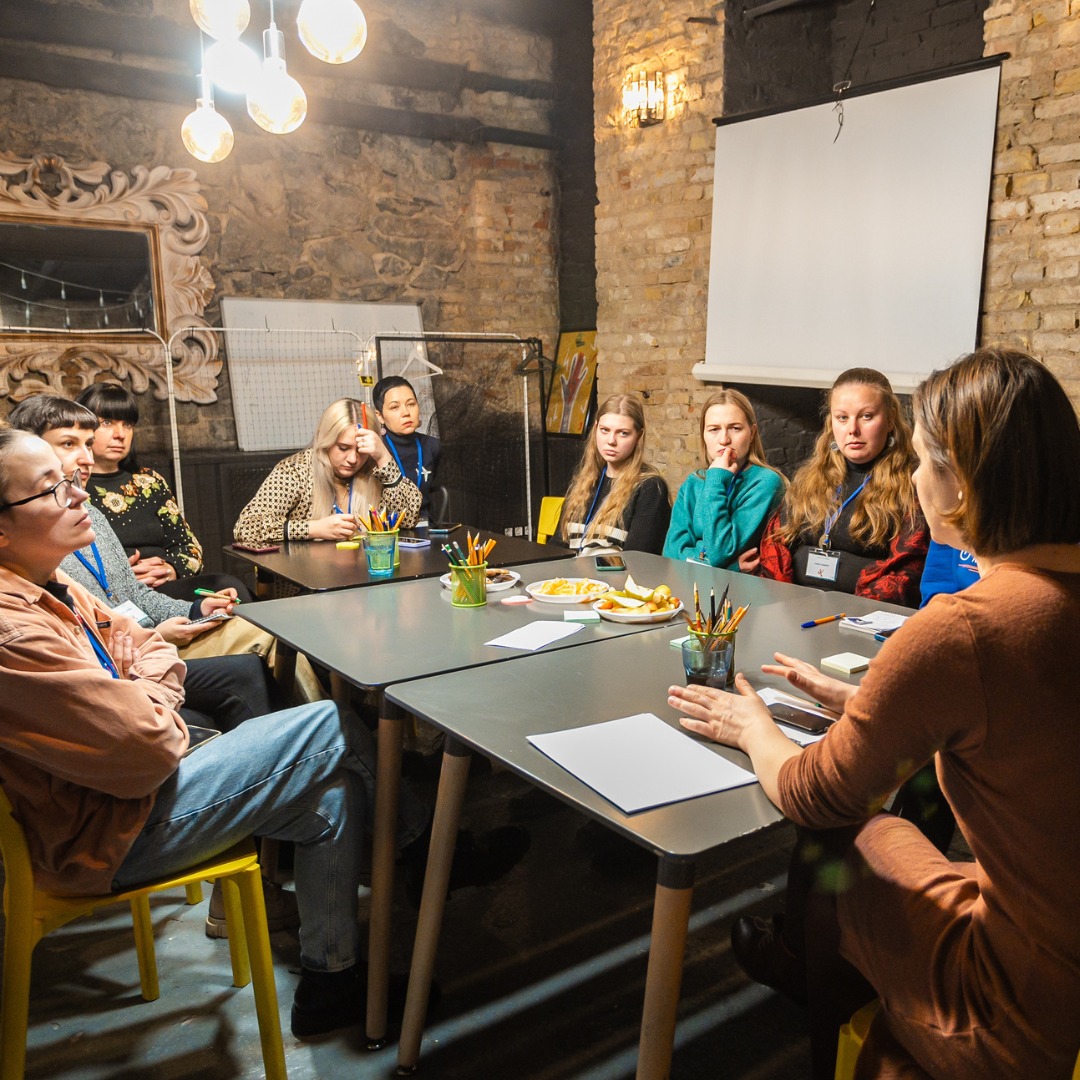 A meeting of teachers. Source: Facebook
A meeting of teachers. Source: Facebook
One of the challenges that the organization is currently facing is funding. The non-profit "ZNOvU" has been operating solely on a volunteer basis for the past four years, with teachers generously devoting their free time to the project. Nevertheless, the founders are diligently striving to secure grant funding in 2024.
Children from occupied territories share a common desire to feel a sense of belonging to Ukraine
"In our first year of work, a boy named Rodion graduated from our course and has made us incredibly proud. He recently began studying at the Taras Shevchenko National University of Kyiv. It's only been our first year, and we already have a graduate who's been accepted into this prestigious university! He said to us: "You guys are amazing; I want to help you," – and joined our team."
The boy assisted with organizing matters and spreading information. When the large-scale invasion commenced, he went back to his house.
"He is still residing under occupation, which is a painful issue for us. We have had minimal contact with him in the past two years. If he manages to write to us once every three months, we consider it a good sign; at least we know he is doing well. Unfortunately, his parents remain in the occupied territories, and he cannot leave them," Olena explains.
The founder of the project comments, "In my opinion, it appears that they all genuinely want to feel like they are a part of Ukraine. We have more lenient admission criteria for children from the occupied areas, which is appropriate. However, there is a concern for children from the frontlines or areas where Ukraine has recently been liberated. They have to meet the same admission requirements as other applicants, even though they are in dangerous conditions. I worry that they would not have the same level of knowledge as their peers from Ukrainian schools, who have been studying in the Ukrainian language for longer. This could result in significant educational setbacks. So, if we can assist 20-30 students in reaching the same level of knowledge as typical Ukrainian children who resided in the territories controlled by Ukraine at that time, I am more than willing to do so, and so are all of our teachers."
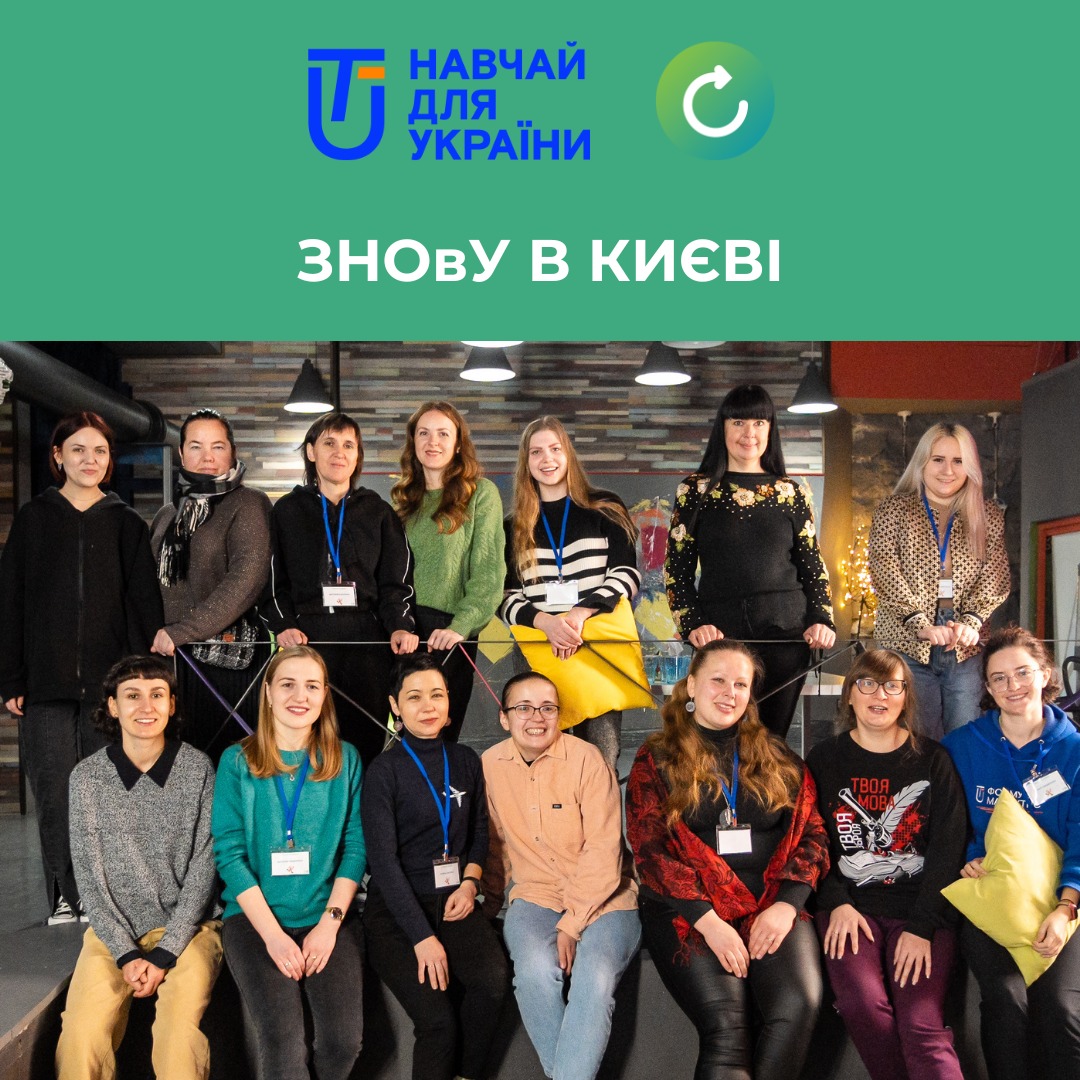 Source: Facebook
Source: Facebook
To join the project, students must first complete an application form detailing their place of origin and reasons for wanting to participate. These applications are then prioritized in a specific manner. The project prioritizes children from territories currently under temporary occupation or near conflict zones. Following them are internally displaced persons who have left their home country and any other children who wish to participate in the project.
The next step is an initial assessment, which gauges the child's level of enthusiasm. It's crucial for teachers to work with driven students who are committed to attending classes. The test results are necessary for the program to evaluate its success. Once testing is complete, the organizers add the children to chat groups and a shared server, introduce them to their teachers, and set up all the necessary procedures. Typically, this process begins in October.
According to the organization, it is uncommon for a student to leave a project without explaining it. It could be that the student is struggling with managing all of their courses, in which case they would write and explain the situation. This process also applies if a student cannot attend a class for any reason. Teachers are always willing to assist and accommodate the student's schedules.
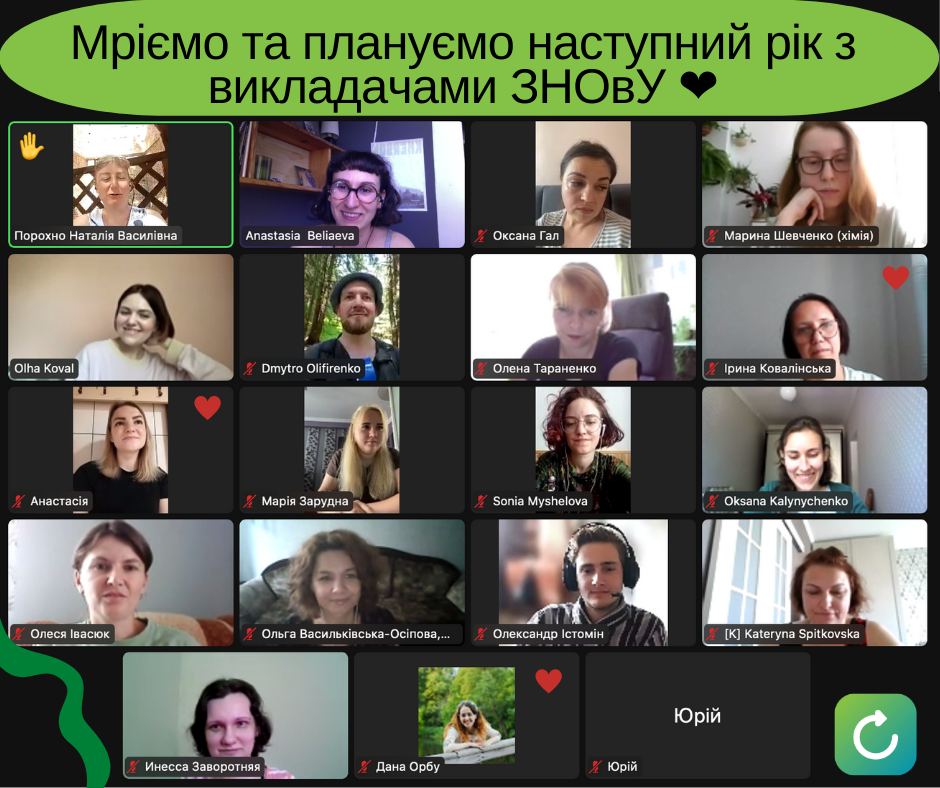
Source: Facebook
Olena feels content: "Around 70% of our participants successfully complete the project." Teachers can gauge the children's level even before the start of school, as they have access to their test scores. Some teachers even prefer working with a group of students who have a lower level, as it allows "for the most visible progress."
Connection with the occupied territories and the value of people
The partner organizations in that area, specifically "Skhid SOS," work to establish communication in the occupied territories and share information about the actions of the "ZNOvU" organization. The project also utilizes familiar sources to Ukrainians, such as the Ministry of Education's official channels, the New Ukrainian School, "Osvitoria," etc. All of these were already familiar to Ukrainians before the start of the full-scale war.
The girl explains that the number of students who volunteer for the program after it ends measures the quality of their work. She states, "Initially when we conceived this project, it felt like we were just thinking of an idea and starting to work on it. However, when our graduates express how valuable the program was to them and show interest in joining our organization to continue supporting it, I see that as an indication that we are effectively reaching our target audience and meeting a genuine need."
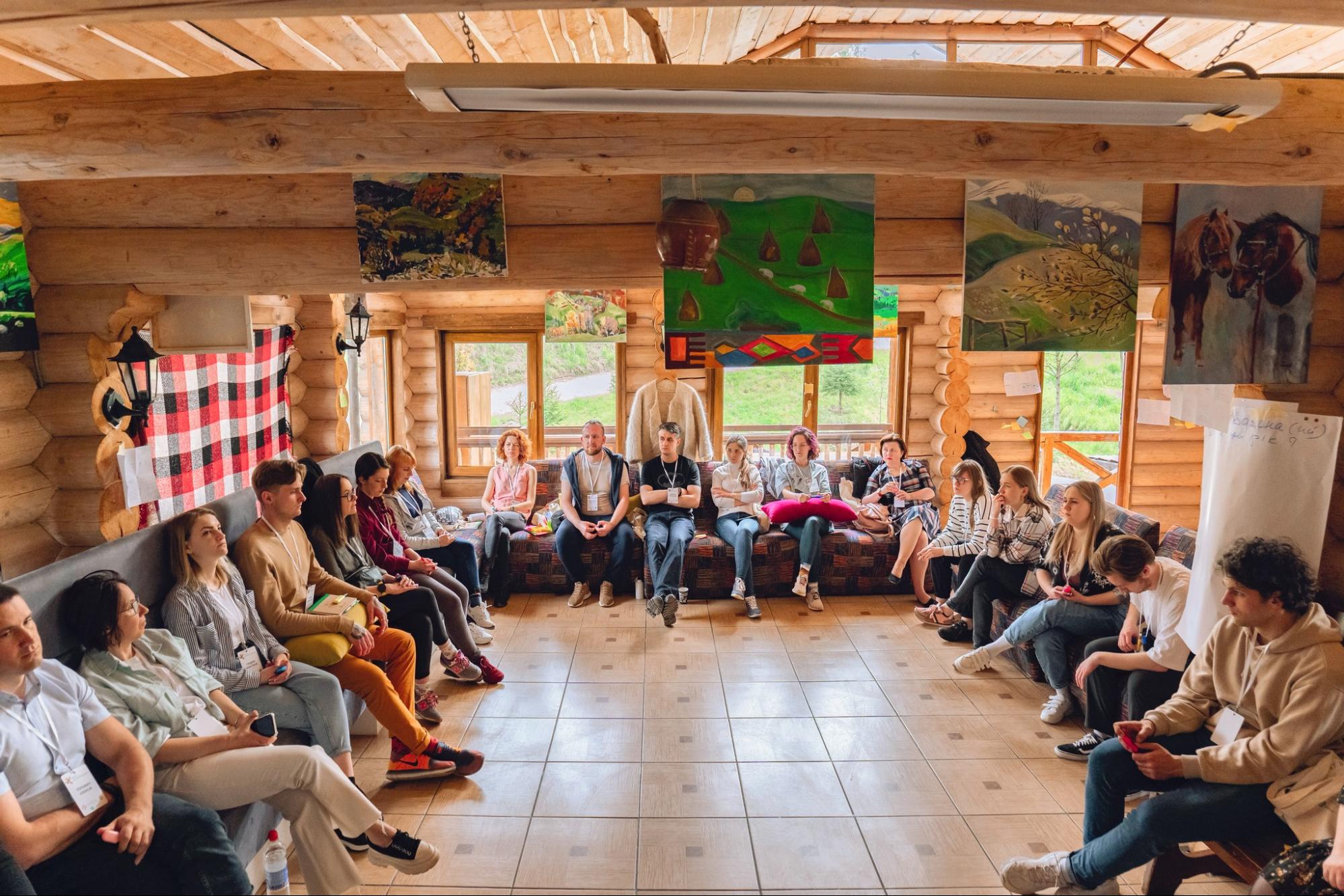
The team in the Carpathians. Source: Facebook
Currently, Katrusia, a journalism student, runs the organization's social media networks. As a graduate, she is completing an internship and credits "ZNOvU" for helping her gain university admission. Despite previously living in occupied territories, she was able to relocate.
"Last year, she was on a retreat with our teachers in the Carpathians. When they saw one of the students they had worked with, they exclaimed, 'Wow, these children really exist!' Olena chuckled.
When discussing educational losses in territories that are occupied or on the front lines, Olena adds:
"I won't give any advice to those living in the occupied territories because, ultimately, it's safety that matters. It's crucial to prioritize the safety of the children in any situation. If learning Ukrainian or our history puts them in physical danger from the occupying forces, it's simply not worth it. We'll compensate for what we've lost once we regain control of the territories."

Старша школа роками погано готує дітей до життя та вишу: як це пропонує змінити реформа та благодійники

Як на українську освіту повпливала війна, або що робити, щоб не втратити нове покоління
Rubryka has developed this material as a member of the Recovery Window Association. Learn all about the recovery efforts in the affected regions of Ukraine on our platform, recovery.win





